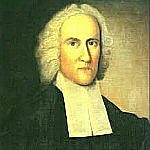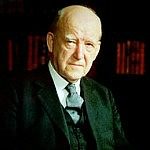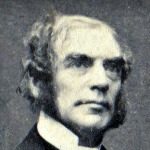Quotes about Holy_Spirit-Presence
However great a spiritual influence may be, it is not to be expected that the Spirit of God should be given now in the same manner as it was to the apostles.
Distinguishing Marks of a Work of the Spirit of God, 1741. Modern language courtesy of Archie Parrish, The Spirit of Revival, Crossway Books, 2000, p. 77.
A work is not to be judged by any effects on the bodies of men; such as tears, trembling, groans, loud outcries, agonies of body, or the failing of bodily strength. The influence persons are under is not to be judged of one way or other by such effects on the body. Scripture nowhere gives us any such rule. We cannot conclude that persons are under the influence of the true Spirit because we see such effects upon their bodies. This is not given as a mark of the true Spirit; nor on the other hand, have we any reason to conclude from any such outward appearances that persons are not under the influence of the Spirit of God. There is no rule of Scripture given us by which to judge spirits that either expressly or indirectly excludes such effects on the body, nor does reason exclude them.
Distinguishing Marks of a Work of the Spirit of God, 1741. Modern language courtesy of Archie Parrish, The Spirit of Revival, Crossway Books, 2000, p. 59-60.
Dull. I find, by experience, that, let me make Resolutions, and do what I will, with never so many inventions, it is all nothing, and to no purpose at all, without the Spirit of God; for if the Spirit of God should be as much withdrawn from me always, as for the week past, notwithstanding all I do, I should not grow, but should languish, and miserably fade away. I perceive, if God should withdraw his Spirit a little more, I should not hesitate to break my Resolutions, and should soon arrive at my old state. There is no dependence on myself.
Prayer can no more be divorced from worship than life can be divorced from breathing. If we follow his impulse, the Holy Spirit will always lead us to pray. When we allow him to work freely, he will always bring the Church to extensive praying. Conversely, when the Spirit is absent, we will find excuses not to pray. We may say, “God understands. He knows I love him. But I’m tired. I’m so busy. It’s just not convenient now…” When the Spirit is absent, our excuses always seem right, but in the presence of the Spirit our excuses fade away.
The Spirit does not glorify Himself; He glorifies the Son… This is, to me, one of the most amazing and remarkable things about the biblical doctrine of the Holy Spirit. The Holy Spirit seems to hide Himself and to conceal Himself. He is always, as it were, putting the focus on the Son, and that is why I believe, and I believe profoundly, that the best test of all as to whether we have received the Spirit is to ask ourselves, what do we think of, and what do we know about, the Son. Is the Son real to us? That is the work of the Spirit. He is glorified indirectly; He is always pointing us to the Son.
The genuine evidence of the Holy Spirit’s influence in a person’s life is not material prosperity, mindless emotionalism, or supposed miracles. Rather, it is sanctification: the believer’s growth in spiritual maturity, practical holiness, and Christlikeness through the power and leading of the Holy Spirit (as He applies biblical truth to the hearts of His saints). A true work of the Spirit convicts the heart of sin, combats worldly lusts, and cultivates spiritual fruit in the lives of God’s people.
Strange Fire, Copyright © John MacArthur, 2013, p. 56.
Get this book!
A Roman seal conveyed authenticity, security, ownership, and authority. And the Spirit of God represents those same realities in the lives of His children. Those who have received the Holy Spirit can rest assured that they are truly saved (authenticity) and that their salvation can never be lost or stolen from them (security). Moreover, the Spirit’s presence in their lives demonstrates that God is their Lord and Master (ownership). As they are led by the Spirit, they will manifest a life of submissive obedience to Christ (authority). All this is part of the Spirit’s sealing work.
MacArthur
Strange Fire, Copyright © John MacArthur, 2013, p. 193.
Get this book!
[God] provided the revelation of truth because the Holy Spirit was behind the revelation, the truth which the believer could believe. Then the Holy Spirit convicted of sin. Then the Holy Spirit transformed the person and energized that person to be obedient to God, to love Him, to hate sin… Old Testament saints experience the presence of the Holy Spirit or they never would have been Old Testament saints but there is a fullness and a richness and a degree and a depth to which the new covenant believer experiences the Holy Spirit unknown to them. And it is a fullness, it is a gushing river from inside. And that’s why…we’re more like the transfigured Christ than we are the shining Moses…. What is the difference then between the Spirit’s work in a New Testament Christian and an Old Testament Christian? The only answer I know is the degree is different, the extent is different, the manifestation, the fullness is different.
The Glory of the New Covenant – Part 7, This article (www.gty.org/resources/sermons/47-21/the-glory-of-the-new-covenant-part-7) originally appeared at www.gty.org. © 1969-2008. Grace to You. All rights reserved. Used by permission.
The Holy Spirit never intended to occupy the center stage in the life of the church. Yes, He is the dynamic behind every Christian life. That is His role; that is His ministry (cf. Acts 1:8; 2 Cor. 3:18; Eph. 5:18). However, when He is thrust into the limelight by man, such is not in accord with the will of God as revealed in Scripture. Our Lord Jesus Christ is to have the preeminence in all things (cf. Col. 1:13-18). The Spirit’s ministry focuses upon revealing the Lord Jesus Christ and in exalting Jesus before all (cf. John 15:26; 16:13-15)… When people talk more about the Spirit than the Lord Jesus Christ, such an orientation points to error in the church.
Charismatic Challenge by John Napier, Providence House Publishers, 2003, p. 136. Used by permission. All rights reserved.
How can I tell the difference between the convicting ministry of the Holy Spirit and the accusing attacks of Satan? Some thoughts: 1. The Holy Spirit puts His finger on a specific sin I have committed, something concrete I can own and confess, but the accusations of Satan are vague and simply demoralizing. 2. The Holy Spirit shows me Christ, the mighty Friend of sinners, but the devil wants me spiraling down into negative self-focus. 3. The Holy Spirit leads me to a threshold of new life, but the devil wants to paralyze me where I am. 4. The Holy Spirit brings peace of heart along with a new hatred of sin, so that I bow before Jesus in reconsecration, but the devil offers peace of mind with smug relief, so that I fold my arms and say, “There, that’s over with.” 5. The Holy Spirit helps me to be so open to God that I allow Him to control the conversation, but the devil tempts me to take off the table certain questions I just don’t want God to talk to me about. We are thankful for our dear Friend, the Holy Spirit.
The Comforter gives a sweet and plentiful evidence and persuasion of the love of God to us, such as the soul is taken, delighted, satiated withal. This is His work, and He does it effectually. To give a poor sinful soul a comfortable persuasion, affecting it throughout, in all its faculties and affections, that God in Jesus Christ loves him, delights in him, is well pleased with him, hath thoughts of tenderness and kindness towards him; to give, I say, a soul an overflowing sense hereof, is an inexpressible mercy.
1. The Spirit awakens a person’s heart. 2. The Spirit teaches a person’s mind. 3. The Spirit leads to the Word. 4. The Spirit convinces of sin. 5. The Spirit draws to Christ. 6. The Spirit sanctifies. 7. The Spirit makes a person spiritually minded. 8. The Spirit produces inward conflict. 9. The Spirit makes a person love the brethren. 10. The Spirit teaches a person to pray. These are the great marks of the Holy Spirit’s presence. Put the question to your conscience and ask: Has the Spirit done anything of this kind for your soul?
The work of the Holy Spirit in John 3 is applied to the wind (the same word as spirit). From a human perspective, the wind has a point of origin and a destination that is unknown, yet we know the wind is present based upon the effects it leaves behind. Likewise, we are totally at the mercy of the free and sovereign will of God. Just as the wind is invisible and unpredictable and uncontrollable, God’s Spirit is moving among human beings, regenerating their hearts, and enabling them to willingly trust Christ for salvation. And when people do trust Christ, there will be evidence of His presence.
The Bible does not provide a uniform formula for the proper physical or emotional reactions to the presence of the Holy Spirit. The presence of tears, convulsions, jerking, laughter, etc. are no measure of the Spirit’s presence. When we canvass the Scripture to see how the saints reacted to the outpouring of the Spirit, we see no prescribed form of bodily behavior. Habakkuk had a quivering lip and a trembling belly. Others fell to the ground as though dead. Some wept, some sang, some were reduced to stunned silence. In light of the diversity of human personalities and indeed the very nature of man, the presence or absence of these responses is no true test of the authenticity of the Spirit’s work. However, I hasten to add that though a wide variety of emotional responses may be detected in Scripture by those who encounter the living God, there is at least one emotion that may safely be excluded from the list – namely, boredom. It is hardly possible for a creature made in the image of God to be awakened or revived by the Spirit of God and be bored in the process.
The Spirit of Revival by Archie Parrish, Introduction, Copyright 2000, Crossway Books, a division of Good News Publishers, Wheaton Illinois 60187, www.crosswaybooks.org. p. 25-26.
To the believer: Dear brother, honor the Spirit of God as you would honor Jesus Christ if He were present. If Jesus Christ were dwelling in your house you would not ignore Him, you would not go about your business as if He were not there. Do not ignore the presence of the Holy Spirit in your soul. I beseech you, do not live as if you had not heard whether there were any Holy Spirit. To Him pay your constant adorations. Reverence the august guest who has been pleased to make your body His sacred abode. Love Him, obey Him, worship Him.
And you may know whether it is the Spirit’s work by this. Have you been led to Christ, and away from self? Have you been led away from all feelings, from all doings, from all willings, from all prayings, as the ground of your trust and your hope, and have you been brought nakedly to rely upon the finished work of Christ? If so, this is more than human nature ever taught any man. This is a height to which human nature never climbed. The Spirit of God has done that, and He will never leave what He has once begun.
As we grow spiritually, we learn the difference between the Spirit’s voice and the evil one’s voice. The Spirit never witnesses to your spirit in condemnation. He might give you a check sometimes: “Wait a minute. Wait a minute.” But not in condemnation. He might tell you you’re wrong sometimes. But not in condemnation. He rebukes, He corrects, He points out, but He never condemns. He wants to build you up, to undergird you, to increase your understanding of the life of God in you. He wants you to see how God already sees you. You are a saint, a holy one. You are blameless. You are beyond reproach.
Dependence on the Spirit does not mean inactivity, but it does mean activating our faith before we activate our wills.
A Journey to Victorious Praying, Moody Publishers, 2003, p. 215.
Get this book!
If the Holy Spirit was withdrawn from the church today, 95 percent of what we do would go on and no one would know the difference. If the Holy Spirit had been withdrawn from the New Testament church, 95 percent of what they did would stop, and everybody would know the difference
Wherever the Holy Spirit dwells, His presence creates a hunger for holiness. His office is to magnify Christ, and it is He who gives the believer a desire to be like Christ. The natural man has no such passion. But in the Christian, the Spirit of God begins to carry out the will of God to make the child of God like the Son of God (Romans 8:29). And He who began this good work in the life of the believer “will carry it on to completion until the day of Christ Jesus” (Philippians 1:6).
Spiritual Disciplines for the Christian Life, 1991, p. 237. Used by permission of NavPress – www.navpress.com. All rights reserved. For more information please see the website www.BibicalSpirituality.org. Get this book!
It is the Holy Spirit who is causing you to persevere. In those times when you are lazy and have no enthusiasm for any Spiritual Discipline, or when you haven’t practiced a particular Discipline as you habitually do, it is the Holy Spirit who prompts you to pick it up in spite of your feelings. Left to yourself you would have forsaken these means of sustaining grace long ago, but the Holy Spirit preserves you by granting to you the grace to persevere in them.
Spiritual Disciplines for the Christian Life, 1991, p. 238, Used by permission of NavPress – www.navpress.com, All rights reserved. For more information please see the website www.BibicalSpirituality.org. Get this book!
All that we spiritually know of ourselves, all that we know of God, and of Jesus, and His Word, we owe to the teaching of the Holy Spirit; and all the real light, sanctification, strength and comfort we are made to possess on our way to glory, we must ascribe to Him… Where He is honoured, and adoring thoughts of His person, and tender, loving views of His work are cherished, then are experienced, in an enlarged degree, His quickening, enlightening, sanctifying and comforting influence.















